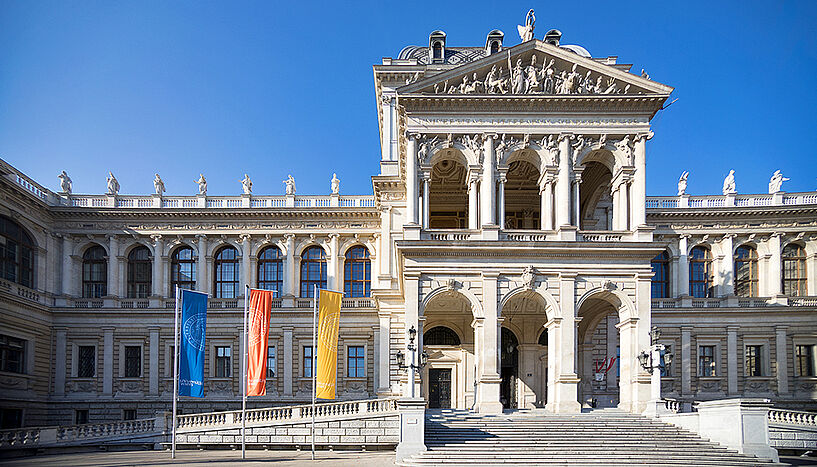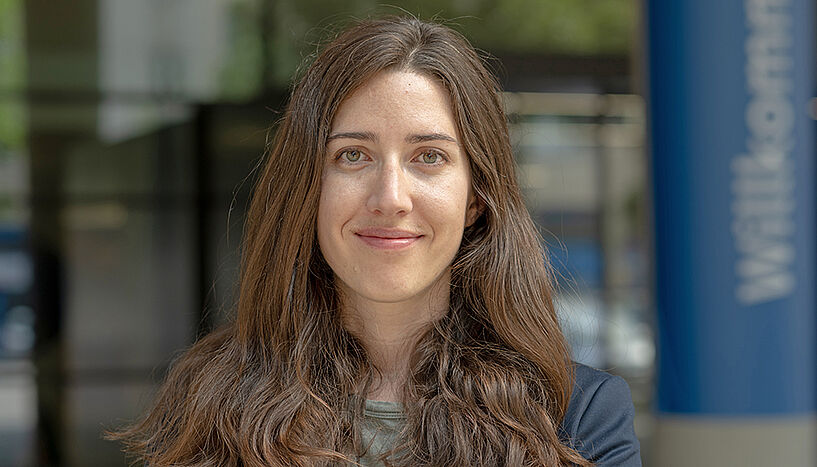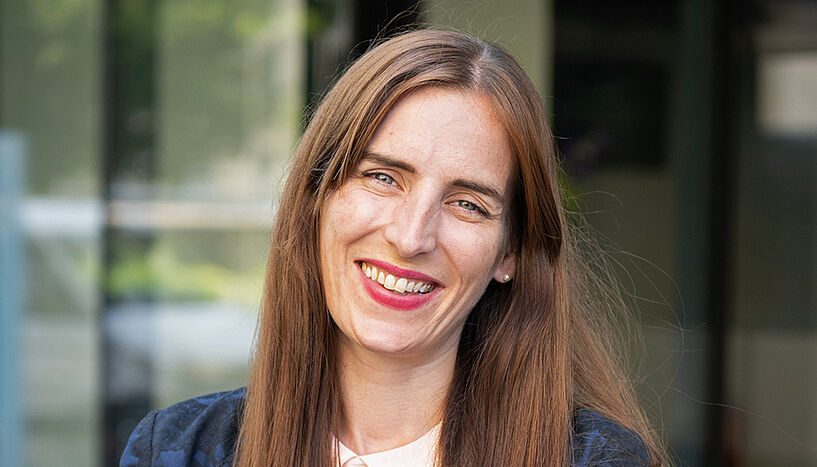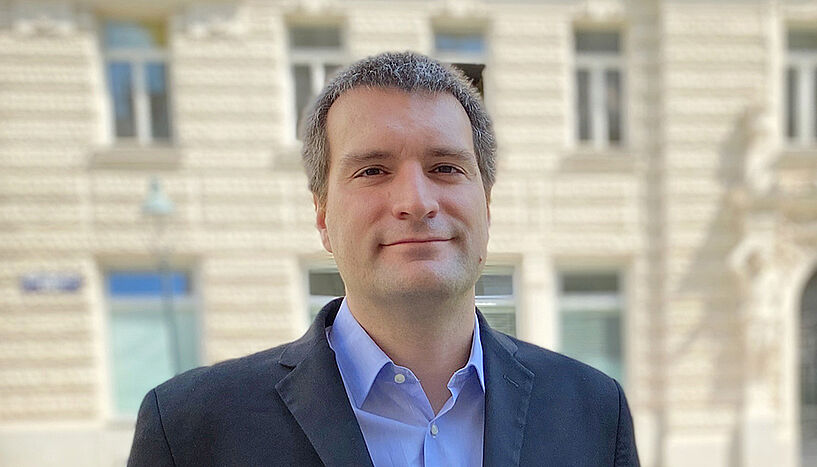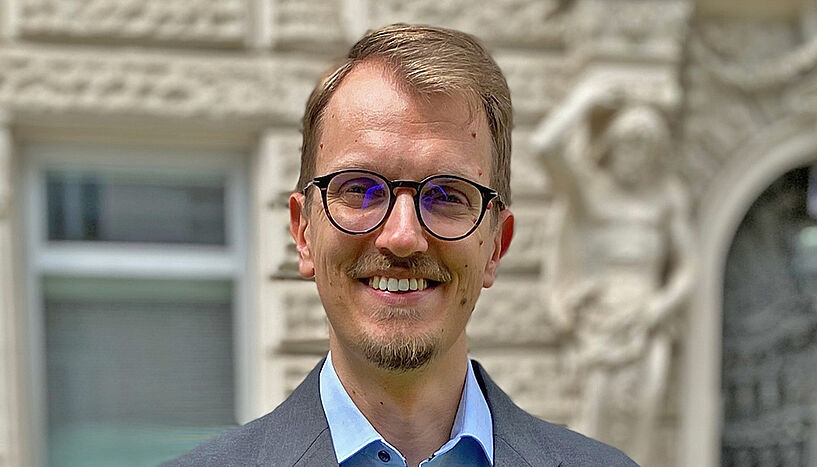Four START Awards for the University of Vienna
22. June 2023Four young researchers from the University of Vienna were able to convince the FWF Board of their excellent research project.
The Austrian Science Fund FWF announced this year's START award winners on 22 June 2023. At the University of Vienna, a total of four young scientists can look forward to the coveted award of around 1.2 million euros.
A total of eight scientists were successful in the highly competitive selection process from among 126 applications. The four award winners from the University of Vienna are environmental microbiologist Barbara Bayer, cell and developmental biologist Stephanie Ellis, mathematician Clemens Sämann and physicist Marcus Sperling. By receiving this prize, the young researchers have climbed a particularly important step in their scientific careers: they are thus given the opportunity to plan their research in the longer term and with financial security.
Barbara Bayer: Understanding the role of the greenhouse gas methane in climate change
Microorganisms in aquatic ecosystems are constantly producing and degrading methane. But it is not yet known exactly how much of the potent greenhouse gas aquatic ecosystems emit. That's why environmental microbiologist and START prize winner Barbara Bayer wants to find out exactly which processes are behind it. It is also important to investigate how the over-fertilisation of lakes and oceans influences the natural methane cycle.
"The prize allows me to take another step towards independence, because now I can set up my own research group. With the generous research budget, we will also be able to apply elaborate and particularly innovative methodologies," Bayer is pleased to say. "As a first step, we will carry out methane measurements in Austrian lakes and also near the French Mediterranean coast, as well as in the Baltic Sea."
Barbara Bayer is a Postdoctoral Researcher at the Center for Microbiology and Environmental Systems Science at the University of Vienna. In 2019, she completed her PhD at the Institute of Limnology and Bio-Oceanography at the University of Vienna and subsequently worked for two years as a Research Fellow at the University of California, Santa Barbara.
Stephanie J. Ellis: How skin cells watch over their neighbours
Stephanie J. Ellis is a cell and developmental biologist. She is researching how skin cells check the "fitness" of their neighbours in order to sort them out if necessary. So far, the principles behind quality control are unclear. To address the question, Ellis has now been awarded the START Prize 2023 - one of two women to receive the prestigious funding this year.
"I am very honoured to receive this award. The START Prize gives me the freedom to incorporate cutting-edge, emerging technologies into my research. With my 'high risk, high reward' approach, I aim to uncover the way cells communicate with other cells to detect and remove damaged cells from tissues before they have the chance to cause disease," explains Ellis. There is also great excitement on the part of the team. "The START award also takes a lot of pressure off my team - they can now be more creative, make more mistakes and try lots of new things - and that's what science is all about," Ellis emphasises.
Stephanie Ellis completed her PhD in Cell and Developmental Biology at the University of British Columbia in Canada in 2014. Until 2021, she was a postdoctoral researcher at the Rockefeller University in New York City. Since 2022, Ellis has been a junior group leader at Max Perutz Labs in Vienna.
Clemens Sämann: A new mathematics that makes black holes easier to understand
Mathematician and START Prize winner Clemens Sämann is trying to open up a new perspective on Einstein's theory of relativity. Together with his colleagues, he has found a way to apply the approach of metric geometry to general relativity - a combination that has not been considered before. The research could lead to new insights into the nature of black holes, for example.
"The prize will enable me to set up my own research group to continue and even expand my current research. I am particularly pleased that I can now return to the University of Vienna. There is a perfect research environment and many synergies here, as many colleagues are working on similar and related areas. I currently have a temporary position at the University of Oxford and my goal now is to get a long-term position at the University of Vienna," Sämann tells us happily.
Clemens Sämann completed his PhD in mathematics at the University of Vienna in 2015, where he also habilitated in 2019. He was a postdoctoral researcher at the University of Vienna until 2022 and spent two years at the University of Toronto as part of the Schrödinger Programme of the Austrian Science Fund FWF. Currently, Sämann is a Postdoctoral Research Associate at the Mathematical Institute of the University of Oxford.
Marcus Sperling: Cross-dimensional quantum theories
Physicist and START Prize winner Marcus Sperling is investigating a fundamental theory in physics - quantum field theory. He is developing new mathematical methods to understand the most complicated aspects of it piece by piece, even ascending to higher dimensions. In this way, the researcher wants to contribute to the fundamental understanding of our world.
"The START Prize is a seal of approval for my research work and an incomparable milestone in my career so far. It has been classified as innovative, professionally significant and worthy of funding. The long-term financial support enables me, on the one hand, to set up a team with which I will jointly advance my research topic. On the other hand, it offers opportunities for international collaborations that will both lead to new research ideas and significantly increase the relevance and impact of my work," Sperling tells us. "For my team, the START Prize means the opportunity to immerse themselves in a young, dynamic and global field of research and to contribute to gaining knowledge at the border between physics and mathematics," says Sperling.
Marcus Sperling is a physicist currently researching supersymmetric quantum field theories at the interface of physics and mathematics at the Shing-Tung Yau Center at Southeast University in Nanjing, China. After a PhD at the Gottfried Wilhelm Leibniz University in Hannover, he worked as a postdoc at the University of Vienna and then at the Yau Mathematical Sciences Center at Tsinghua University in Beijing, China.
Further inquiry
Mag. Alexandra Frey
Media Relations ManagerUniversität Wien
1010 - Wien, Universitätsring 1
+43-1-4277-17533
+43-664-8175675
alexandra.frey@univie.ac.at

